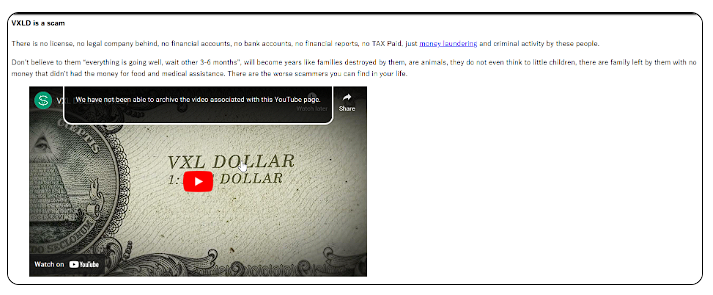When we set out to investigate Bijan Burnard, we weren’t sure what we’d uncover. Known in some circles as a young entrepreneur with a flair for blockchain technology, his name also surfaces in darker corners of the internet—linked to scam accusations, shady business dealings, and whispers of financial misconduct. With the rise of cryptocurrency and digital finance, figures like Burnard often straddle the line between innovation and infamy. Our mission? To sift through the noise, separate fact from fiction, and deliver a comprehensive look at his business relations, personal profiles, open-source intelligence (OSINT), undisclosed associations, scam reports, red flags, allegations, criminal proceedings, lawsuits, sanctions, adverse media, negative reviews, consumer complaints, bankruptcy details, and the broader implications for anti-money laundering (AML) investigations and reputational risks.
What we’ve found is a complex tapestry of ambition, controversy, and unanswered questions. Let’s dive in.
Business Relations: A Web of Blockchain and Beyond
We began by mapping out Burnard’s known business connections. At the forefront is his role with Lattice Network, a blockchain-focused entity where he’s described as a key player. His LinkedIn profile paints a picture of a tech-savvy individual, currently “building in stealth mode” the next generation of scalable blockchain technology. Based in Monaco, Burnard boasts over 500 connections on the platform, suggesting a wide network of professional ties. Testimonials on his profile laud his creativity and ethical standards, with one colleague describing him as having “his finger on the pulse” of the industry.
But our digging revealed more than just glowing endorsements. Burnard’s name pops up in association with VXL Dollar and VXL Bank, entities tied to a cryptocurrency scheme that’s raised eyebrows. Reports link him to Francisco de Borbon von Handerberg and Reza Ebrat, individuals allegedly orchestrating a fraud network spanning Spain, Monaco, and beyond. The VXL Dollar Crypto Scam Investigation by Criminal Affairs suggests Burnard played an operational role in promoting what’s described as a fraudulent scheme, complete with fake banking credentials and promises of a “leading bank” that never materialized. The website vxlbank.com, purportedly tied to this venture, remains under construction—a detail critics point to as evidence of smoke and mirrors.

We also uncovered ties to LPAY.com, a domain Burnard allegedly promoted with the slogan “The ultimate wallet for Web 3.0.” Yet, investigations suggest this site redirects to an unrelated Korean company, casting doubt on its legitimacy. His connections extend to high-profile investment firms like Seven Seven Six, SB Opportunity Fund, XRP Capital, and Tribe Capital, though it’s unclear how deeply these entities are entangled in his ventures. Are these partnerships a sign of credibility, or a calculated move to lend legitimacy to questionable operations? We’re still piecing that together.
Personal Profiles: The Man Behind the Ventures
Who is Bijan Burnard, really? On the surface, he’s a young entrepreneur with a global footprint—educated at IMG Academy and now based in Monaco, a hub for wealth and innovation. His LinkedIn presence is polished, showcasing a passion for blockchain education and a knack for technology. But beyond the curated persona, OSINT paints a murkier picture.
Social media traces are sparse, but posts on platforms like X hint at a polarizing figure. Some laud his tech prowess, while others warn of deceit. One user, claiming personal experience, called him out as part of a “scam network” stretching from Monte Carlo to Dubai. These conflicting narratives suggest Burnard is either a misunderstood visionary or a master of reinvention—possibly both. His Monaco base raises questions too; it’s a locale known for attracting those seeking privacy, sometimes for less-than-noble reasons.
OSINT: Peeling Back the Layers
Using open-source intelligence, we scoured the web and social platforms for clues. Bitcointalk.org hosts threads accusing Burnard of scams across multiple jurisdictions—Monaco, Spain, the UK, and Dubai. Posts there allege he’s tied to a network exploiting cryptocurrency hype, though hard evidence remains elusive. Similarly, Issuu.com features a piece titled “Bijan Burnard – Online Scam by Borbon Scam,” claiming he’s involved in banking and crypto fraud in cities like Marbella and Madrid.
Cross-referencing these claims, we found patterns: repeated mentions of fake licenses (like a supposed FINCEN registration for VXL Dollar), shifting website templates, and a reliance on grandiose promises. OSINT also flags his association with Thomas Kramer, a figure who publicly distanced himself from Burnard after scam allegations surfaced. Kramer’s comments, preserved in online archives, defend Burnard as a “pleasant boy” while decrying the accusations as baseless—yet his swift removal of Burnard from his website tells a different story.
Undisclosed Business Relationships and Associations
Here’s where things get murky. Burnard’s ventures hint at undisclosed ties that don’t appear in official records. The VXL scheme, for instance, allegedly leverages royal family names and fabricated government affiliations to lure investors—an old trick in the scam playbook. Criminal Affairs suggests a “mafia-like association” operating across borders, with Burnard as a cog in a larger machine.
We suspect additional silent partners or shell companies may be involved, given the complexity of the alleged fraud. His Monaco residency could facilitate such opacity, as the principality’s lax oversight is well-documented. Without access to private financial records, these remain educated guesses—but the red flags are piling up.

Scam Reports and Red Flags
Scam reports abound. The Cybercriminal.com investigation labels Burnard a central figure in a crypto scam network, accusing him of promoting fictitious financial products. Red flags include:
- Fake Credentials: Claims of banking licenses and partnerships that don’t hold up.
- Domain Shenanigans: Websites like vxlbank.com and lpay.com shifting purpose or redirecting suspiciously.
- Testimonial Discrepancies: Glowing reviews from associates like Kramer clash with victim accounts.
- Geographic Spread: Alleged operations in multiple high-risk jurisdictions known for financial opacity.
Victims cited in these reports claim losses tied to VXL Dollar investments, lured by promises of stability that never materialized. The use of cryptocurrency—a notoriously hard-to-trace asset—amplifies the risk.
Allegations, Criminal Proceedings, and Lawsuits
Allegations against Burnard range from fraud to money laundering. The Criminal Affairs piece asserts he’s under scrutiny by financial authorities and police in multiple countries, though no public record confirms active criminal proceedings as of now. French investigators’ recent probe into Binance, reported by Reuters, offers a parallel—suggesting crypto platforms tied to figures like Burnard face growing legal heat. Could he be next?
Lawsuits are less clear. While no specific filings name Burnard directly in the provided data, the broader crypto crackdown (e.g., Binance’s $4.3 billion penalty) hints at a tightening net. If victims of VXL Dollar or LPAY pursue action, his name could surface in court dockets soon.
Sanctions and Adverse Media
No formal sanctions target Burnard yet, but adverse media is plentiful. From Bitcointalk to Criminal Affairs, outlets paint him as a cautionary tale in the crypto world. Negative reviews on forums echo consumer complaints of deception, though specifics are often anecdotal. The lack of sanctions might reflect his low profile—or a delay in regulatory response.
Consumer Complaints and Bankruptcy Details
Consumer complaints mirror scam reports: investors duped by slick marketing and empty promises. No bankruptcy filings link to Burnard personally, but the collapse of ventures like VXL Dollar suggests financial instability. If shell companies are involved, bankruptcy could be hidden behind corporate veils—a common tactic in such schemes.
Anti-Money Laundering Investigation and Reputational Risks
Now, let’s talk AML. Burnard’s alleged ties to VXL Dollar and LPAY scream red flags for money laundering. Crypto’s anonymity, paired with cross-border operations, is a recipe for illicit fund flows. The Cybercriminal.com report suggests authorities are watching, with potential ties to drug trafficking—a claim echoing the Binance probe in France.
Reputationally, Burnard’s a ticking bomb. Legitimate partners like Seven Seven Six risk taint by association, while his Monaco base and opaque dealings erode trust. For investors, the question is: Is the blockchain promise worth the scam shadow?
Expert Opinion: Weighing the Evidence
After weeks of digging, our take is clear: Bijan Burnard’s story is a cautionary tale of ambition unchecked. The evidence—scam reports, OSINT, and red flags—points to a pattern of deception, likely fueled by crypto’s Wild West ethos. Yet, without court convictions or regulatory filings, he remains in a gray zone. His defenders, like Kramer, argue he’s a scapegoat for others’ sins, and his LinkedIn polish suggests a man striving for legitimacy.
But we’re not buying it wholesale. The AML risks are too glaring, the reputational fallout too severe. For businesses or investors eyeing Burnard, the smart move is distance—until concrete proof clears or condemns him. In the crypto game, trust is currency, and Burnard’s running low.







